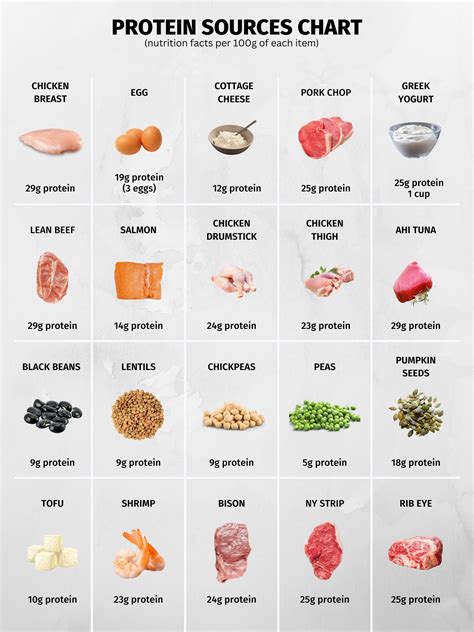What’s the optimal daily protein intake for muscle growth & recovery in active men?

The Crucial Role of Protein for Active Men
For active men, protein isn’t just a nutrient; it’s the fundamental building block for strength, endurance, and recovery. Engaging in regular physical activity, especially resistance training, places significant demands on the muscular system, leading to microscopic damage that requires repair and rebuilding. This process, known as muscle protein synthesis (MPS), is directly fueled by the amino acids derived from dietary protein. Without adequate protein intake, the body struggles to repair damaged tissues, adapt to training stimuli, and ultimately, grow stronger.
Beyond muscle growth, protein plays a vital role in enzyme production, hormone regulation, immune function, and maintaining satiety, all of which contribute to overall athletic performance and well-being. Therefore, understanding the optimal daily protein intake is paramount for any active man looking to maximize his physical potential and ensure robust recovery.

Determining Your Optimal Protein Needs
While general dietary guidelines exist, an active man’s protein requirements are significantly higher than those of a sedentary individual. The consensus among sports nutritionists and researchers suggests a range rather than a single fixed number, as individual needs can vary based on several factors.
General Recommendations for Muscle Growth and Recovery:
- Resistance-trained individuals: For men actively engaged in strength or resistance training, a daily intake of 1.6 to 2.2 grams of protein per kilogram of body weight (0.73 to 1.0 grams per pound) is generally recommended. This range has been shown to optimize muscle protein synthesis and facilitate effective recovery.
- Calorie Deficit for Fat Loss: When in a calorie deficit to lose body fat, active men may benefit from an even higher protein intake, sometimes up to 2.3 to 3.1 grams per kilogram of lean body mass (1.0 to 1.4 grams per pound of lean body mass). This increased intake helps preserve lean muscle mass during weight loss, which is crucial for maintaining metabolic rate and strength.
- High-volume endurance athletes: While often associated with strength training, endurance athletes also benefit from adequate protein for repair and recovery, typically falling within the 1.2 to 1.7 grams per kilogram range.
It’s important to note that consuming protein significantly beyond these ranges does not necessarily lead to greater muscle growth and may simply be oxidized for energy or excreted, potentially putting unnecessary strain on the kidneys in extreme cases, though healthy kidneys can handle higher intakes.

Factors Influencing Protein Requirements
Several individual variables can influence where an active man falls within the recommended protein intake range:
- Training Intensity and Volume: More intense and frequent workouts cause greater muscle damage and thus require more protein for repair and adaptation.
- Body Composition and Goals: An individual aiming for significant muscle gain may lean towards the higher end of the spectrum, especially if they have a large amount of lean muscle mass. Those in a cutting phase (calorie deficit) also benefit from higher protein to spare muscle.
- Age: Older active men (over 50) may require slightly higher protein intake (often 1.8-2.2 g/kg) due to anabolic resistance, a reduced sensitivity to protein’s anabolic effects.
- Overall Caloric Intake: When overall calories are insufficient, protein can be used for energy rather than muscle repair and growth. Ensuring adequate caloric intake is crucial for protein to perform its primary functions.
- Protein Quality: The quality of protein sources (completeness of amino acid profile) also matters.

Timing and Quality: Maximizing Protein Utilization
It’s not just about how much protein you consume, but also when and what kind. Distributing protein intake evenly throughout the day is more effective for muscle protein synthesis than consuming one or two large servings.
- Distribution: Aim for 4-5 meals or snacks per day, each containing 20-40 grams of protein. This steady supply of amino acids helps maintain elevated muscle protein synthesis rates throughout the day.
- Peri-Workout Nutrition: While the “anabolic window” directly after a workout is not as narrow as once thought, consuming protein within a few hours before and after training can still be beneficial for recovery and muscle growth. A protein-rich meal or shake post-workout can kickstart the repair process.
- Before Bed: A slow-digesting protein like casein before bed can provide a sustained release of amino acids overnight, potentially aiding in muscle recovery and growth.
- Protein Quality: Prioritize complete proteins that contain all essential amino acids. Excellent sources include lean meats (chicken, beef, fish), eggs, dairy products (Greek yogurt, cottage cheese, whey/casein protein), and certain plant-based options like soy, quinoa, and combinations of legumes and grains.

Practical Strategies for Meeting Your Protein Goals
Incorporating sufficient protein into your daily diet doesn’t have to be complicated. Here are some practical tips:
- Meal Planning: Plan your meals to include a significant protein source at each sitting.
- Smart Snacking: Opt for protein-rich snacks like hard-boiled eggs, Greek yogurt, nuts, or a protein shake.
- Lean Protein Sources: Focus on lean cuts of meat, poultry, fish, and plant-based proteins to manage fat intake.
- Supplements: While not essential, protein powders (whey, casein, soy, pea) can be convenient and effective for reaching your daily targets, especially around workouts or when whole food options are limited.
- Track Your Intake: Briefly tracking your food intake can provide valuable insight into your current protein consumption and help you identify areas for improvement.
Remember that individual responses can vary. Listening to your body, observing how you recover, and adjusting your intake accordingly is key. Consulting with a registered dietitian or a sports nutritionist can provide personalized guidance tailored to your specific needs and goals.

Conclusion
For active men, optimal daily protein intake is a cornerstone of muscle growth, efficient recovery, and overall athletic performance. While the exact number varies, aiming for 1.6 to 2.2 grams of protein per kilogram of body weight, distributed strategically throughout the day, serves as an excellent evidence-based guideline. By focusing on high-quality protein sources, consistent intake, and considering individual factors, you can effectively fuel your body to adapt, grow, and recover from the demands of an active lifestyle.









